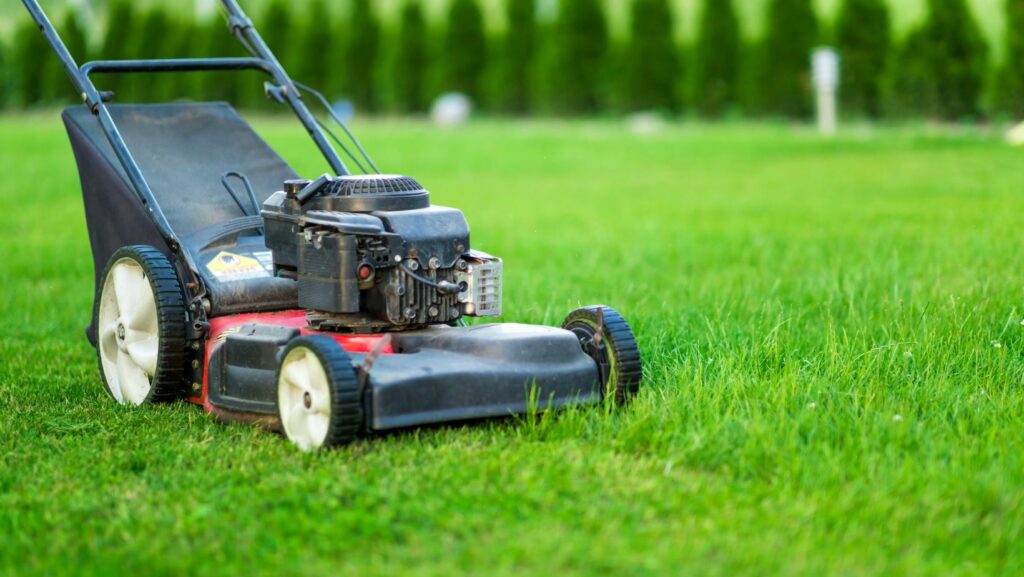Cultivating a Verdant Paradise: 12 Lawn Care Tips for Vibrant and Healthy Greenery

A lush and healthy yard is a beautiful sight and a testament to your dedication to nurturing a vibrant outdoor space. Whether you’re a seasoned gardener or just starting, these top 12 West Virginia lawn care service tips will help you achieve a verdant paradise outside your doorstep. From mowing techniques to soil care, we’ll delve into essential practices that can transform your yard into a thriving haven for flora and fauna alike.
Understanding Your Soil
Understanding your soil is the foundation of successful lawn care. Conduct a soil test to determine its pH levels, nutrient content, and composition. This analysis will guide you in choosing suitable fertilizers and soil amendments to ensure optimal growth for your grass and plants.
Proper Mowing Techniques
Mowing your lawn may seem straightforward, but proper techniques can significantly impact its health. Set your mower blades to the appropriate height for your grass type, avoiding overcutting, which can stress the plants. Additionally, vary your mowing patterns to prevent soil compaction and promote even growth.
Watering Wisely
Watering your lawn is crucial, but it’s essential to do it wisely. Opt for deep, infrequent watering sessions rather than frequent shallow ones. This encourages deep-root growth, making your grass more resilient to drought conditions. Use a sprinkler system or soaker hoses to ensure even coverage and minimize water waste.
Aeration for Healthy Roots
Regular aeration is critical to maintaining healthy roots and promoting overall lawn vitality. This process involves perforating the soil to allow air, water, and nutrients to reach the grassroots. Consider aerating your lawn annually, especially if you notice compacted soil or poor drainage.
Choosing the Right Grass Varieties
Selecting the right grass varieties for your region and climate is essential for a thriving lawn. Consult with local experts or nurseries to determine which grass species best suit your area’s temperature, rainfall, and soil conditions.
Feeding Your Lawn
Proper fertilization is vital for supplying essential nutrients to your lawn. Based on your soil test results and grass type, choose a fertilizer with the appropriate balance of nitrogen, phosphorus, and potassium. Apply the fertilizer evenly and follow recommended guidelines to prevent nutrient imbalances or runoff.
Weed Control Strategies
Weeds detract from your lawn’s beauty and compete with grass for nutrients and sunlight. Implement a proactive weed control strategy that includes regular inspections, manual removal of weeds, and targeted herbicide applications as needed. Mulching can also help suppress weed growth while retaining moisture.
Pest Management Practices
Pests like insects and rodents can wreak havoc on your lawn if left unchecked. Monitor your yard for signs of pest infestation and implement integrated pest management strategies. This approach combines cultural, biological, and chemical control methods to minimize pest damage while preserving beneficial organisms. For more localized expertise, consider consulting a service like Fort Myers pest control to address specific issues in your area.
Seasonal Maintenance Routines
Adjust your lawn care practices according to the seasons to accommodate changing environmental conditions. This includes aerating and overseeding in the fall, preparing for winter dormancy, and addressing spring growth needs.
Regular Maintenance and Monitoring
Consistent monitoring and maintenance are crucial for long-term lawn health. Look for signs of stress, disease, or nutrient deficiencies, and take corrective action promptly. Regularly inspect your mower and other equipment, sharpen blades as needed, and tidy your lawn edges for a polished look.
Mulching for Soil Health
Incorporating mulch into your lawn care routine offers multiple benefits for soil health and moisture retention. Organic mulches like shredded leaves, grass clippings, or bark chips help regulate soil temperature, reduce evaporation, and suppress weed growth. As these materials break down, they enrich the soil with valuable nutrients, promoting a fertile environment for plant roots. Apply a layer of mulch around trees, shrubs, and garden beds, being mindful not to cover the grass excessively to avoid suffocation.
Promoting Biodiversity
Encouraging backyard biodiversity contributes to its overall health and resilience: plant native trees, shrubs, and flowers to attract pollinators, birds, and beneficial insects. A diverse ecosystem enhances your lawn’s visual appeal and fosters natural pest control and nutrient cycling. Create habitat features like bird feeders, bee hotels, or small ponds to support wildlife and contribute to a balanced and thriving outdoor environment.
Cultivating a lush and healthy yard is a rewarding journey that requires dedication, knowledge, and ongoing care. By implementing these top 12 lawn care tips, you can create a vibrant outdoor space that enhances your home’s beauty and provides a sanctuary for relaxation and enjoyment. Remember to tailor your approach to your specific climate and soil conditions, and don’t hesitate to seek advice from local gardening resources or professionals for personalized guidance. Your lawn can become a verdant paradise for years with the right strategies and consistent effort.

 Cost-Effective Pool Heating Solutions for Perth Homeowners
Cost-Effective Pool Heating Solutions for Perth Homeowners  Minimalist groceries: A simplified shopping list that will save money and banish food waste
Minimalist groceries: A simplified shopping list that will save money and banish food waste  Tips on Growing Japanese Maple
Tips on Growing Japanese Maple